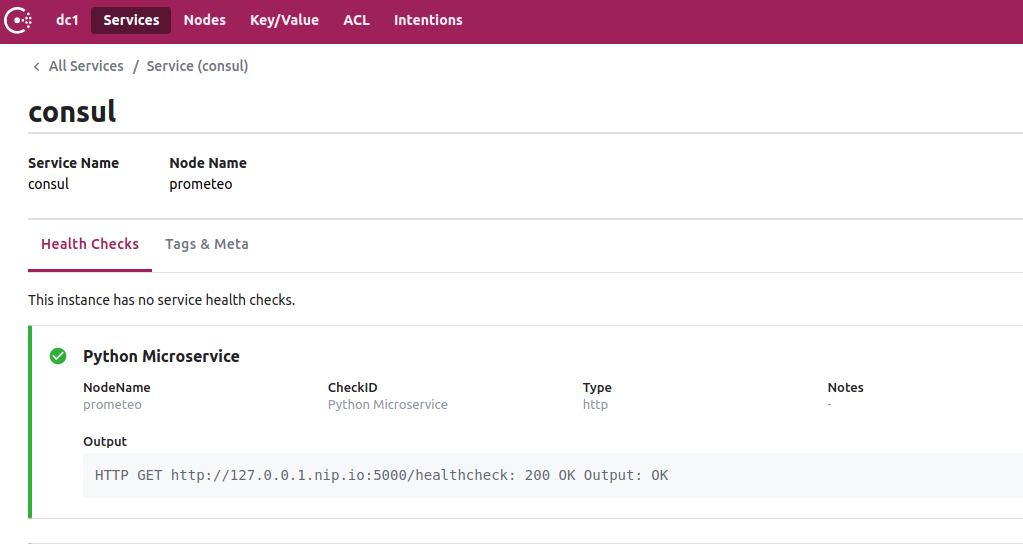Service Discovery
PyMS support at this moment this service discovery
- Consul
- Eureka (TODO)
- Kubernetes (TODO)
Consul
This service use Consul Client Library to connect to Consul
pyms:
services:
service_discovery:
service: "consul"
host: "localhost"
autoregister: true
config:
DEBUG: true
TESTING: false
APP_NAME: "Python Microservice"
APPLICATION_ROOT: ""
Check your local configuration with Docker. Run:
docker run -d --net=host -e 'CONSUL_LOCAL_CONFIG={"leave_on_terminate": true, "enable_script_checks": true}' consul
Open http://localhost:8500/ to check if Consul is up. If it's ok, when you run your microservice with
autoregister: true parameter, you will see in Consul your microservice like this image:

Consulate client
You can use all consulate options with
ms.service_discovery.client or current_app.ms.service_discovery.client. In example:
ms.service_discovery.client.agent.checks()
See official docs for more information.
Create your own Service Discovery
Instead of define a service keyword, you can point to a class in your proyect that inherit from ServiceDiscoveryBase (see example above)
pyms:
services:
service_discovery:
service: "myproject.servicesdiscovery_file.MySvcDiscovery"
host: "localhost"
autoregister: true
config:
DEBUG: true
TESTING: false
APP_NAME: "Python Microservice"
APPLICATION_ROOT: ""
Under myproject/servicesdiscovery_file.py:
from pyms.flask.services.service_discovery import ServiceDiscoveryBase
class ServiceDiscoveryConsulBasic(ServiceDiscoveryBase):
def register_service(self, id_app, host, port, healtcheck_url, app_name):
headers = {"Content-Type": "application/json; charset=utf-8"}
data = {
"id": app_name + "-" + id_app,
"name": app_name,
"check": {"name": "ping check", "http": healtcheck_url, "interval": "30s", "status": "passing"},
}
response = requests.put(
"http://{host}:{port}/v1/agent/service/register".format(host=host, port=port),
data=json.dumps(data),
headers=headers,
)
if response.status_code != 200:
raise Exception(response.content)